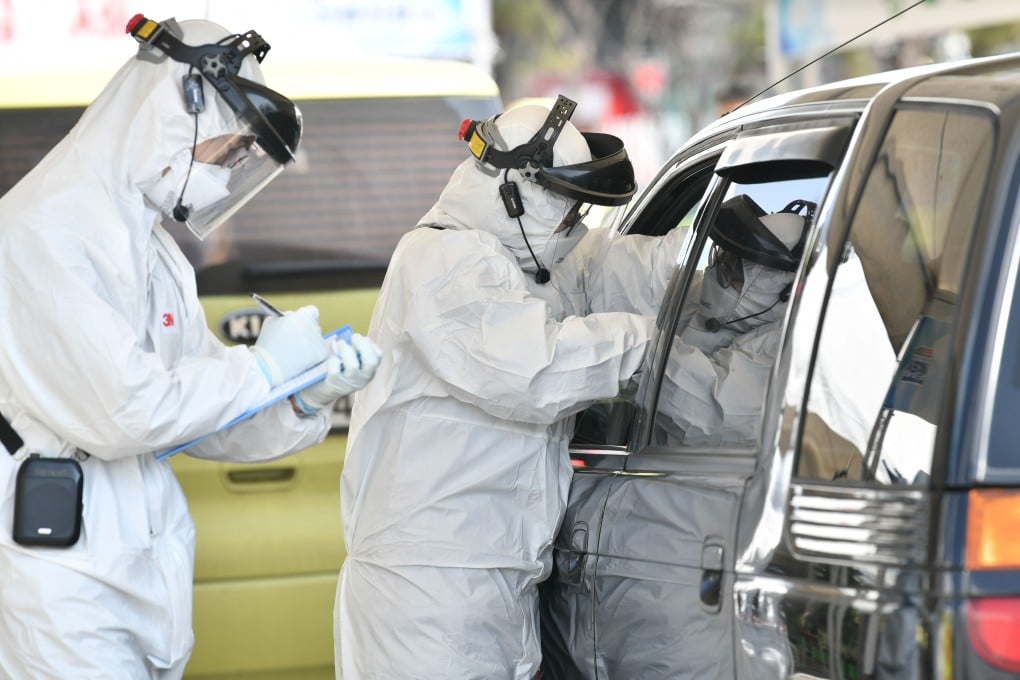Advertisement
Coronavirus: South Korea’s aggressive testing gives clues to true fatality rate
- With 140,000 people tested, the country’s mortality rate is just over 0.6 per cent compared to the 3.4 per cent global average reported by the WHO
- Various factors can influence this percentage, but scientists agree that all things being equal, it is more accurate when more people are tested
Reading Time:5 minutes
Why you can trust SCMP
0

Within a month of confirming its first case of Covid-19 on January 20, South Korea had tested nearly 8,000 people suspected of infection with the new coronavirus that causes the disease. A little over a week later, that number had soared to 82,000 as health officials mobilised to carry out as many 10,000 tests each day.
Neighbouring Japan, on the other hand, tested only a fraction of that number, with fewer than 2,000 people checked on any given day since the beginning of its outbreak in late January. So far, more than 6,000 cases have been confirmed in South Korea and over 1,000 in Japan, if you include the Diamond Princess cruise ship that was quarantined in the Port of Yokohoma.
In the United States, where the number of confirmed cases has surpassed 100, health authorities had as recently as this week tested fewer than 500 people in total, hindered by legal and technical barriers to mass screening.
Which is where South Korea’s massive testing effort can come in, providing a valuable reference point for public health experts around the world who are starved of hard data – offering potentially the most comprehensive picture yet of the threat posed by Covid-19 to the general public.
And while experts caution that it is still too early to draw firm conclusions, the picture emerging in South Korea – which has the most confirmed cases outside China but with a more transparent political environment – suggests the virus could be less lethal than patchier data emerging from elsewhere.
Advertisement